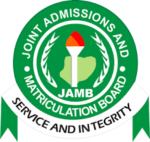What is a Degree?
Serious research of a flood of decision can prompt any of the four significant sorts of degrees, prominently known as:
Four year college education: A Bachelor’s certification is four three years, for the most part full-time college class which can lead you to your Master’s certification.
Partner Degree: An Associate degree program is accessible as professional degrees that train the understudies exhaustively on hypothesis and useful. It traverses throughout the span of two years.
Graduate degree: A Master’s certificate is a specific, concentrated post-advanced education that is sought after the Bachelor’s certification. This higher review program is of two years span.
Doctorate Degree: A Doctorate certification is the most elevated level of scholarly degree which can be concentrated on after the graduate degree. Try not to be deceived by the term ‘doctorate’ for it infers a doctorate of reasoning, and that implies it energizes free examination under the direction of a doled out manager. It takes somewhere in the range of four to seven years to finish a PhD program. Whenever you are granted the degree, a task is soon on the rundown!
The essential advantage of seeking after a degree course is that the understudies can go after and get positions in no time. The educational program centers around the specialization according to the understudy’s assets.
Benefits and Disadvantages of a Degree
One benefit of a degree is that numerous businesses frequently require one, regardless of whether your major fundamentally apply to the gig. Setting out on the excursion for a degree and owning it to the end likewise can show responsibility and commitment, which can be profitable in the gig market.
Different advantages to procuring a degree include:
Better potential for acquiring more significant compensations.
More attractive and alluring for occupations past section level.
Mastering extra abilities like decisive reasoning and investigation.
Organizing open doors for future profession choices.
Better work benefits like protection, retirement, and perhaps even travel.
Several detriments while taking a gander at a degree program are the expense and the time it takes to finish. Despite the fact that most foundations offer monetary guide or the like, degrees can in any case be the most costly type of advanced education. They likewise ordinarily take the longest to finish thus demand a huge time speculation.
What is a Diploma?
A Diploma is more in-depth than a certificate and can take a little longer to earn, but still usually less than a year. Diploma programs are also often more technical. The classes taken in conjunction with earning a Diploma allow you to gain a thorough understanding of your field of study, though you won’t earn a degree upon completion of the program. The two most popularly known Diplomas are:
Graduate Diploma: A certified qualification that is undertaken at the undergraduate degree level.
Post-graduate Diploma: A certified qualification that is undertaken after the bachelor’s degree course.
Advantages and Disadvantages of a Diploma
A Diploma can be advantageous if you’re looking to make a career change in a relatively short amount of time and the field you’re entering doesn’t require a degree. Since Diplomas are often more technical or trade-based, they are helpful when wanting to pursue a career such as an electrician or a dental assistant.
Some other advantages to a Diploma include:
They can be completed in a relatively short amount of time
They are cost-effective; they cost less than a full-fledged degree
You don’t have to worry about prerequisites or other complicated enrollment procedures you may find with a degree program
Class schedules are often flexible as most attendees are working professionals
Classes are focused on the exact skills you will need in the field
Diploma programs usually offer some kind of internships or externships, so you can gain practical experience and also network for future job opportunities.
One of the differences between a Diploma and an associate’s degree is the general education courses; you’ll be required to take those to receive an associate’s degree, but not when you work toward a Diploma.
Confirmation versus Degree: Key Differences Explained!
The accompanying focuses feature the critical qualifications between a degree and a recognition:
As expressed above too, the degree is a certification granted by the college to an understudy for effectively finishing his examinations up to a specific stage in a field of investigation of his decision. The confirmation is a declaration introduced to an understudy by an instructive organization for effectively contemplating and finishing a particular tasks.
Admission to a certain extent program is finished consistently. Admission to a confirmation course, then again, is finished on a yearly or half-yearly premise, contingent upon the strategies of the college or establishment.
Degree programs are regularly more costly than certificate programs. Besides, degree courses call for more investment than confirmation courses to finish.
Some degree programs are adaptable, permitting understudies to change their major after a couple of long stretches of enlistment. A certificate, then again, doesn’t have such a decision.
The base capability for access to some extent program is 10+2, but for a confirmation, it is tenth.
Degree holders are regularly paid more than recognition holders.
There are four classes of certificates: single guy’s, lord’s, partner’s, and doctoral. The sort of recognitions that are accessible is graduate and postgraduate.






